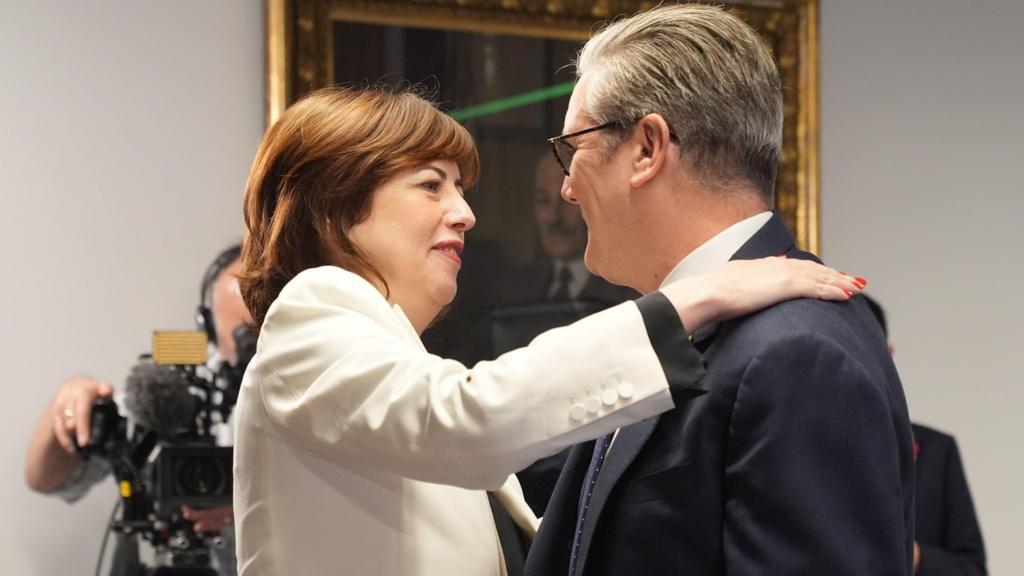“`html
It’s a Saturday morning in a South London backstreet, and I find myself leaning against a metal railing.
Here, outside Labour Party headquarters, is the closest I can get to the announcement of the party’s new deputy leader.
This was a contest the Labour Party didn’t particularly want, and its unveiling was so understated that reporters weren’t even permitted inside to witness it.
Fortunately, after some negotiation, a few broadcast cameras were allowed in, enabling us to observe from the outside – and you, if you chose to tune in.
Just seven weeks ago, the Prime Minister dismissed Lucy Powell from his cabinet.
Today, she assumes the role of Deputy Leader of the Labour Party.
Politics, indeed, is a curious game.
When Angela Rayner stepped down, Sir Keir Starmer seized the opportunity to initiate a fairly extensive reshuffle of his ministerial team.
The most prominent casualty? Powell.
Now, a little over a month later, she’s back.
Not back in government, but back in a directly elected senior position within the party.
While this may not have been Sir Keir’s preferred outcome, it’s worth briefly considering the election’s figures.
Although Powell was the frontrunner once the race narrowed to two candidates, and she emerged as the clear victor, it wasn’t a decisive landslide.
It wasn’t a complete and overwhelming rejection of Bridget Phillipson, who, as a serving cabinet minister, was perceived to be closer to the Prime Minister.
Following the result, reporters remained on the street, enduring a lengthy wait for the winner, the loser, and the Prime Minister to depart.
Word eventually arrived explaining at least one of the reasons for the delay – the Prime Minister and the newly elected Deputy Leader of the Labour Party were in a meeting.
Perhaps a form of “hedgehog diplomacy”? A touch prickly?
Awkward, at least to some degree, surely.
That being said, the expectation from some that Powell will be outspoken or frequently disloyal seems overstated.
After all, she served in government until very recently, and she’s indicated that her observations and critiques will primarily be shared privately.
We shall see.
Stepping back from today’s events, the Labour Party is acutely aware that it is currently losing – losing elections, losing attention, and often losing the argument.
Powell’s election reflects this underlying anxiety.
Consider the controversies and missteps of the past seven weeks.
Rayner, Lord Mandelson, asylum seekers, the China spy case, and the Caerphilly by-election, to name a few.
I asked Powell whether the situation is salvageable – for the country, the government, and her party.
“Yes,” she insisted.
Whether she is correct will ultimately determine the fate of this government.
Sign up for our Politics Essential newsletter to keep up with the inner workings of Westminster and beyond.
He claims the comment at a council meeting was not “directed at anyone” in particular.
Security adviser Matthew Collins says the term “enemy” was removed from a draft statement in 2023.
As we have seen this week, satisfying everyone involved in the inquiry will be an impossible task.
The prime minister is hosting Zelensky and the “coalition of the willing” at Downing Street on Friday.
The process to chose a chair for the inquiry was thrown into chaos when two leading the leading recused themselves from the job, the BBC understands.
“`

